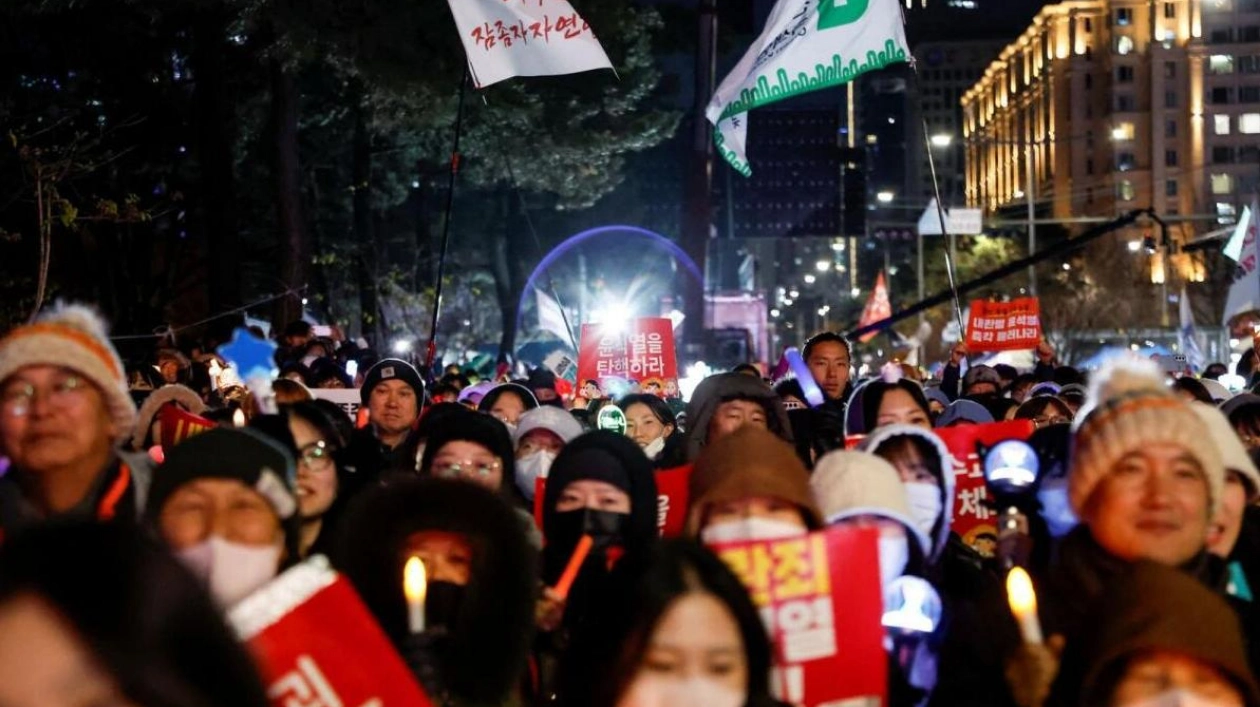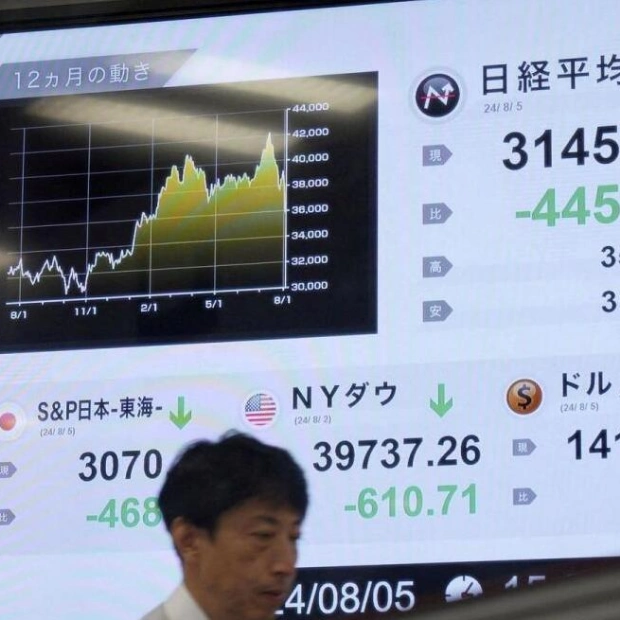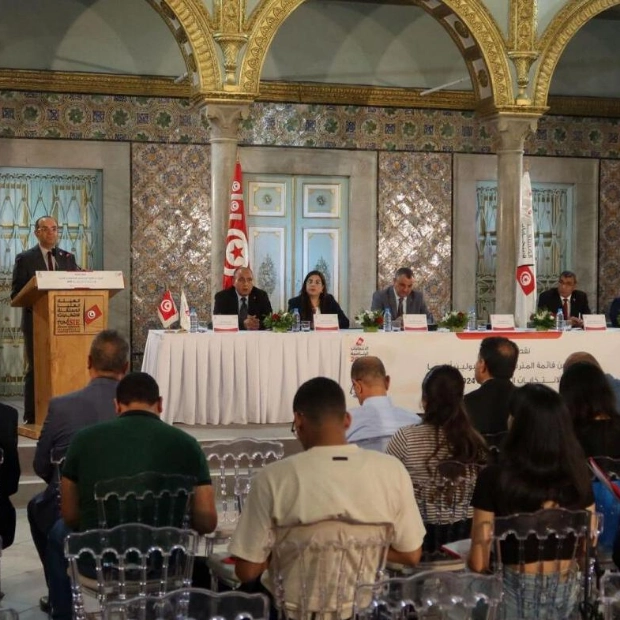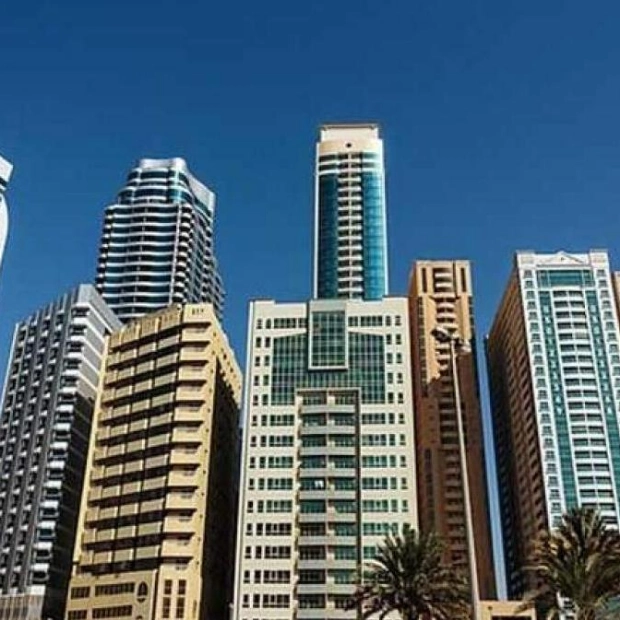Protesters gathered near the National Assembly in Seoul, South Korea, on December 7, 2024, demanding the impeachment of President Yoon Suk Yeol. This follows the arrest of Yoon's former defence minister, who was detained on Sunday for his alleged involvement in Yoon's declaration of martial law last week, according to prosecutors.
Despite surviving an impeachment vote in the opposition-led parliament on Saturday, triggered by the short-lived martial law attempt on Tuesday, the leader of Yoon's own party, Han Dong-hoon, announced that Yoon would be effectively sidelined from his duties before eventually resigning. In a joint press conference with the prime minister, Han stated that Yoon would not participate in foreign and other state affairs prior to his early resignation.
Ex-Defence Minister Kim Yong-hyun, who resigned on Wednesday after Yoon rescinded martial law, was considered a key figure in the controversy. He had proposed martial law to the president, as revealed by a senior military official and the impeachment filings. The prosecution's special investigative team arrested Kim on Sunday and confiscated his mobile phone, according to a brief statement to reporters.
Prior to his arrest, investigators questioned Kim, who voluntarily appeared at the Seoul Central District Prosecutors' Office around 1:30 a.m. on Sunday (1630 GMT on Saturday), reported Yonhap news agency. Three minority opposition parties filed a complaint with the prosecution against Yoon, Kim, and martial law commander Park An-su, accusing them of insurrection, which, if convicted, could result in death or life imprisonment.
Opposition lawmakers claim Yoon mobilized military forces to obstruct a vote by lawmakers aiming to invalidate what they deemed an unconstitutional martial law decree. The national police raided Kim's office on Sunday as part of an investigation into allegations of treason against Yoon and top ministers, according to Yonhap.
Hours before the impeachment vote on Saturday, Yoon addressed the nation in a televised speech, apologizing for his martial law decree and stating he would leave his fate to his party. Han interpreted this as an effective promise to leave office early, adding that the ruling party would consult with the prime minister to manage state affairs. Prime Minister Han Duck-soo assured that the cabinet would do its best to "maintain trust with our allies," referring to the United States and Japan.
Yoon's martial law declaration on Tuesday night, granting the military sweeping emergency powers to combat what he termed "anti-state forces" and political opponents, was rescinded six hours later after parliament voted unanimously against the decree, defying military and police cordons. This move plunged South Korea, Asia's fourth-largest economy and a crucial U.S. military ally, into its most significant political crisis in decades, threatening the country's reputation as a democratic success story.
Source link: https://www.khaleejtimes.com






